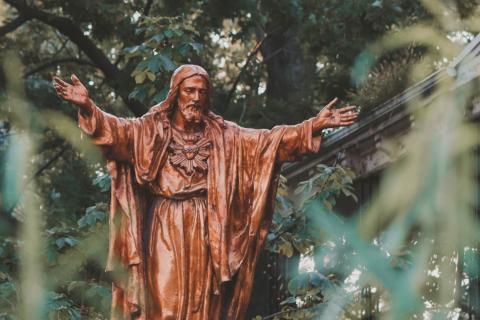
“...the calling of the teacher. There is no craft more privileged. To awaken in another human being powers, dreams beyond one’s own; to induce in others a love for that which one loves; to make of one’s inward present their future; that is a threefold adventure like no other.” - George Steiner, Lessons of the Masters
What is the primary task of the teacher: to impart content knowledge or to aid in the personal formation of the student? When we recognize teaching as a calling (or “vocation”) rather than merely a job or career, it becomes clear that the primary task of the teacher is the latter.
Volumes have been written describing the ‘noble profession’ of teaching, attesting to the central role education (and thus teachers) play in the shaping of civilizations and the guiding of society. The 2020 coronavirus pandemic brought to the fore the vital role the teaching profession plays in society as, by April 2020, our global society was crushed under an immense pressure to provide learning opportunities for children at home. As a seemingly-unending summer break of six months rather than the usual three drew to a close, the thought of continuing the COVID-19 educational experiment into future semesters threw families, educators, administrators, and state and federal officials into a state of such uncertainty that the future of the institution of education itself was brought into question. With a renewed recognition of the indispensable role teachers play in society alongside a new set of complex challenges within the profession, students in education programs at universities are being confronted with the question: “Why do you want to teach?” While such a question is reasonable for any profession, it has become inescapable today for those preparing to serve in the classroom.
Teaching requires much more than the ability to impart content knowledge to students – and this is especially clear in a time marked by uncertainty. While the profession of teaching is often judged in relation to results from high-stakes, standardized assessments (against which student proficiency and teacher competency are measured), such results demonstrate only a small part of what teachers do. Aside from long hours of lesson planning and daily attempts at imparting knowledge and concepts to various and diverse students, the teacher is tasked with maintaining order through a stance of compassion and care – the proverbial love and logic. When one recognizes that such personal interactions are not secondary to the teaching task, but rather that teaching must begin with the soul before it can focus on content knowledge, it becomes clear that teaching is a vocation rather than a mere job or career.
The recognition that teaching is a vocation has immediate consequences for education programs at universities: it is essential that those involved in the task of preparing future teachers to enter the classroom impart an understanding of the child as a person first and foremost. Without an understanding of intrinsic motivational strategies and the human needs of the child, a teacher will find little success in imparting knowledge. It is only when a teacher recognizes his or her students as persons first that learning begins to happen organically. (Consider for a moment your own favorite teacher – what was it that endeared him or her to you? The love you felt for that teacher is the basis for an entire philosophic perspective of the endeavor of teacher preparation.) Thus, training the pre-service teacher to engage in the art of teaching from a position of empathy, compassion, respect, and love is critically important. Colleges and universities who do this well, assigning human dignity as the premier goal in the classroom and only then layering on content expertise, produce graduates who are highly sought and aggressively recruited.
When one recognizes that such personal interactions are not secondary to the teaching task, but rather that teaching must begin with the soul before it can focus on content knowledge, it becomes clear that teaching is a vocation rather than a mere job or career.
Thus, it can be said that an essential element of teacher training at universities is helping pre-service teachers to enter into the necessary person-oriented view of their vocation. Philosophic solidarity on such an approach to teaching is required in order to train and develop consistently the best candidates for a demanding but fulfilling vocation.
Even when it has been accepted that teaching is a vocation, the question arises as to how education departments at colleges and universities can train their students according to such a philosophy. The first step in such a training process is to cultivate a positive view of professional identity in the pre-service teacher. Professional identity has been described as a set of attitudes, beliefs, values, and ethics that embody how an individual navigates their profession with a sense of integrity. For teachers, professional identity (or in this case, vocational identity) plays a critical role in how one sees oneself as contributing to society through one’s vocation. A well-formed sense of identity can influence the tenure of teachers and can have a significant effect on their potential for stepping into positions of educational leadership. For this reason, teacher preparation programs which instill a foundation of identity – professional and vocational – and focus on the student as a person first, cultivate an educational environment that is rich in collaboration, respect, and open communication. This manner of post-secondary training is likely to create the most effective teachers who embody the essence of moral courage.
The vocation of teaching integrally contributes to our society collectively. The vital importance of teachers cannot be denied: without our teachers, innovation and advancement would never reach their full potential, and the human need to develop and flourish would be stymied. To be a teacher is to live a vocation which is deeply personal, highly challenging, and uniquely gratifying – emotionally, professionally, and spiritually. When teacher training is approached from the perspective that teaching is a vocation ordered first to a love for the student, those teachers will cultivate an environment of mutual respect in their classrooms and through those positive relationships, a sustained intrinsic motivation to learn will arise in students.


